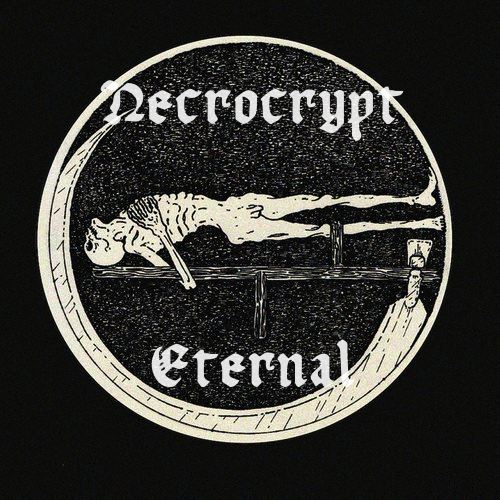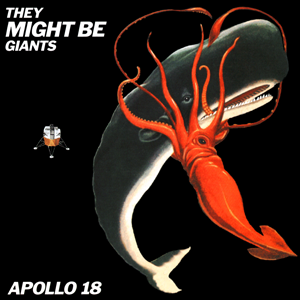Fanisk break the decade of silence following their well-regarded 2003 offering Noontide with the entrancing, audacious Insularum.
Fanisk are labelled an NSBM band (unsurprising, given that Noontide's cover displayed a huge swastika), but the duo of Vitholf (lyrics, vocals) and Eldrig (all instruments) self-describe their work as "Black Solar Art". This is a conscious decision to distance themselves from the herd of typical, reactionary NSBM garbage. You won't find any anti-Zionist rants or panzer-fueled genocidal fantasy of "mud races" on Insularum, nor will you hear the half baked "riffs", recorded in no-fi and recycled ad nauseum, that most NSBM "propaganda efforts" are guilty of peddling. If one absolutely must connect Fanisk to Aryan ideology, they have far more in common with the pre-Hitler Ariosophic blood mysticism of the likes of Guido von Liszt and Jörg Lanz von Liebenfels (who believed that their Aryan heritage held the key to spiritual transcendence) and the Hitler-as-avatar quasi-historical reinterpretations of Savitri Devi and Miguel Serrano, than the gun-toting, inbred-and-loving-it skinhead posturing of modern neo-Nazi music groups. And even then, these connections serve as mere thematic guideposts, for Fanisk do not seem to share (or if they do, do not outwardly express) the questionable anti-Semitic scapegoating that the aforementioned authors could not refrain from adding into their theories. In fact, the only explicit reference to race in Fanisk's oeuvre comes from their first record Die and Become (2002), which mentions a fiery hammer held in a "white hand".
Instead, the pet themes of Fanisk's previous works of black solar art have been mythological and metaphysical: the upholding of ancient and eternal Law as seen in play of the globe's natural forces (wind, winter, fire, the stars) in their constant dance of creation and annihilation.
These themes have not been abandoned on Insularum, but they have been transmuted into a new and curious form. Rather than cosmic cycles, this album speaks of interior vastness, of islands of perfection (to which the Latin title refers) that lie close at hand within the mind and yet seem so distant and alien, and of the grand isolation, both wonderful and terrifying, inherent in the search for, and attainment of, these inner worlds. Translated, the quote from Klaus Kinski that opens the record tells us “I long to go forth from here to another world,” but a repeated lyric assures us that "Lonesome is the ray/way of the return" to that eternal realm.
The transcendent journey of Insularum begins, fittingly, with "Departure Rose Golden" and ends with "Arrival Lotus Black"; however, the album is one continuous piece of music and its division into three long tracks is pretty much arbitrary. (The actual separations both occur right in the middle of a passage and are unnoticeable unless you are watching the track time count down digitally.) To call Eldrig the band's guitarist does him a disservice, because he does not so much write riffs as create holistic compositions. With perhaps the exception of the digitized drums, which never do too much to stand out, he has given each instrument equal consideration and importance within the whole. The sprightly, energetic keyboard arrangements are not mere flourishes stacked on top of the brawny yet melodic guitars, but rather an integral part of the structure. Vitholf's harsh vocals are passable, if unremarkable, and low in the mix, but his clean singing, which pops up more than a handful of times, is much more intriguing.
Eldrig's style of writing has much more in common with classical music than heavy metal. (Richard Wagner is undoubtedly an influence, compositionally and conceptually.) Musical themes are introduced, then further explored and developed until they become new ideas. Passages are skilfully explored in new contexts, which gives Insularum an evolving sense of unity, rather than stale repetition. Just to name an example, the soaring main melodic theme of "Departure Rose Golden" that is introduced in the overture (yes, there's an overture), is later re-purposed, this time using calmly drifting acoustic guitar, as a transition into album's second major movement. Then much later, about a third of the way into "Arrival Lotus Black", a melody emerges that is reminiscent of this main theme, but is barely recognizable as such, as it has transformed to become even more powerful and effective. Eldrig's greatest trick is to move past a memorable stretch of music, only to have it later reappear, reborn in a higher form. This is highly appropriate, given Fanisk's lyrical obsession with spiritual ascendance.
The musical composition on Insularum possesses a great sense of power and strength, but is tempered with surprising grace and elegance. That said, not everything works well. Near the middle of the album there is a section of floating, wave-like ambiance that is occasionally punctuated by one-note staccato bursts. I'm sure this ties in conceptually to the piece, but as a listener, it tends to drag on.
As previously mentioned, the predominant lyrical themes are the desire to transcend the mundane world and the struggles and triumphs of the inner journey toward the Eternal within oneself. Though this atmosphere of meditative introspection and interior exploration comes across clearly enough, most of Vitholf's individual lines are largely inscrutable. He seems determined to pepper his lines with Latinisms, and in general to use purposefully obscure word choices. Here are a few examples, cherrypicked from throughout the album: "Elusive bands, diaphan amble / Delineate evaporous convex", "Envelop whole, marmoreal / Quell aphonic, depth profound", "Sinistrogyre, reel the camber / Involution, drawn recondite." You get the idea. However, he sometimes switches tactics and attempts passages of stately, regal lines that, in their style, resemble (or mimic...) Goethe, or Romantic poetry in general:
Traveled I, far as form would carry,
And came no closer, I to thee…
For shatterest thou, exact and utter,
The vessel last with which to seize
The profundity of this mad inquiry…
And yet, this instant, cruel entire,
Illumine ache in mystic fire
Revealing thy proximity.
And came no closer, I to thee…
For shatterest thou, exact and utter,
The vessel last with which to seize
The profundity of this mad inquiry…
And yet, this instant, cruel entire,
Illumine ache in mystic fire
Revealing thy proximity.
Whether any of this this will actually appeal to you probably depends on how far you think Vitholf has his head up his own ass.
Indeed, if all of what I've described of Insularum sounds incredibly audacious, perhaps even a touch overblown, that's because it is. I can easily see many people writing off this album as pretentious and overwrought. But hey, you can't create a Wagnerian gesamtkunstwerk of this magnitude if you don't have huge balls and ambition to spare. And you don't become the Nietzschean ubermensch by being humble and unassuming.
I have not yet mentioned the title of Insularum's second track, "Enantiodromia", taken from a concept developed by the inimitable C.G. Jung, because I want to tie it into my closing remarks. Enantiodromia can be summarized thusly:
"Literally, 'running counter to,' referring to the emergence of the
unconscious opposite in the course of time. This characteristic
phenomenon practically always occurs when an extreme, one-sided tendency
dominates conscious life; in time an equally powerful counterposition
is built up, which first inhibits the conscious performance and
subsequently breaks through the conscious control."
The point I wish to make is that Insularum embodies this concept within the evolution of Fanisk's whole body of work. If you'll pardon the over-intellectual analysis of what is essentially contrarian babble intoned over grown men playing their instruments as fast and as ugly as they can...:
Black metal, as both a musical style and the general philosophical orientation of the individual personalities performing it, is the outpouring of extreme negativity. In other words, it's full of those "extreme, one-sided tendencies" mentioned above. From Satan worship to suicidal ideation to neo-Nazism, most black metal musicians use their art as a means to revel in their dark side. Their shadow, to put it in Jungian terms. Fanisk's earlier work dealt thematically with destructive power, finding beauty in the necessary annihilation of outward, material forms. But in the 10 years that have passed since Noontide was released, a counterposition has developed, as it must, and this is expressed in the new-found contemplative themes on Insularum.
Keeping in mind Jung's ideas regarding the full development of the personality through the reconciliation of the opposites therein, perhaps it is fitting that Fanisk have disbanded after releasing this ultimate work of Black Solar Art, after the long journey of uniting their shadow with their inner light. If such is the case, what else remains that they could say?
Away, away! Away from all ways! Away, the way! (VBR)







